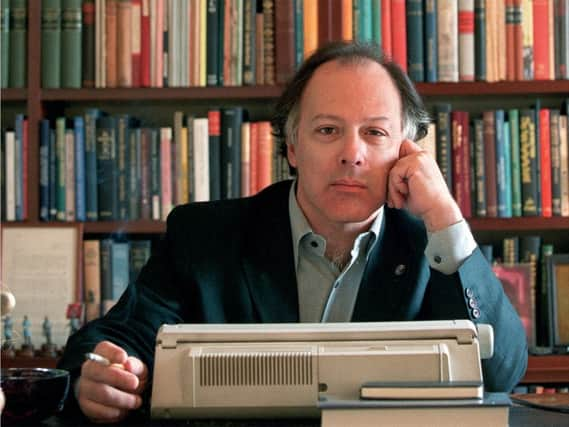Hard times: Spain after Franco


Moreover, if by chance you should write novels yourself, or perhaps practise some other art, you cannot but be conscious of your inferiority to them, and while such consciousness is in some way liberating and pleasing because it renews your faith in the value of great art, it may also be chastening.
They do what you attempt to do so much better than you can yourself. So, yes, your admiration is not ever quite free of resentment. Javier Marías belongs to this select company.
Advertisement
Hide AdAdvertisement
Hide AdHe is not an easy writer. His sentences are long and thinly punctuated. He doubles back on himself. Much of the narrative records the shifts and revised perceptions of his narrator’s mind. He is a realistic novelist who eschews many of the conventions of the realistic novelist. His narrator recounts, with the appearance of authority, very long conversations which he has overheard and which he could not possibly have remembered so exactly. (Sometimes he admits this and remarks that these may not have been the speakers’ exact words, thus calling his own veracity into question.) You have to remain alert in reading him. What he tells you on one page may be qualified or contradicted 50 or 100 pages later. This is not surprising. He is concerned with the face people present to the world, which may not be the face they see in the mirror.
In outline, this new novel, with its title tellingly taken from that appalling scene in which Hamlet confronts his mother Gertrude, is simple. The narrator, Juan De Vere, is a young man at the time of the events he recounts 20 or so years later. He is working as an assistant to a film director, Eduardo Muriel, and living in the house Muriel shares with his wife Beatriz, whose advances he now harshly rejects.
Muriel tells Juan he has heard a disturbing story about an old friend, Dr Van Vechten, and asks him to see what he can find out. The story is that Van Vechten has behaved badly to women. This apparently shocks Muriel even though he behaves so harshly to his own wife.
Marías has two great subjects. The first is the difficulty of distinguishing between what is truth and what isn’t. All his characters lie, often when they believe what they say. The second is the Civil War and its legacy of cruelty, oppression and dishonesty. The novel is set just a few years after the end of the Franco dictatorship, and there is still so much better left unsaid. But what isn’t said may nevertheless be thought, and thoughts promote fears, resentment and more lies.
Advertisement
Hide AdAdvertisement
Hide AdAs we follow Juan following Beatriz about the city, pitying her unhappiness and yet spying on her and recording her transgressions, we are caught up in a cloud of obscurity. It is a crime novel because it is concerned with the pathology of the human condition. It is a thriller, even though all the most significant acts are reported rather than presented directly as they happened. The past hangs heavy over everything.
Marías is a witty writer, playful even in his use of real-life characters such as the actor Jack Palance (the villain in Shane) who make brief appearances, but his world is nevertheless a dark one; life is a maze in which you are more likely to get trapped rather than finding either the centre or the way out.
I suspect Marías’s novels are an acquired taste, but one worth the considerable trouble of acquiring.
They have a flavour all their own, and English-language readers are fortunate that his translator, Margaret Jull Costa, renders them into a beautifully natural English that yet retains a Spanish tone of voice.